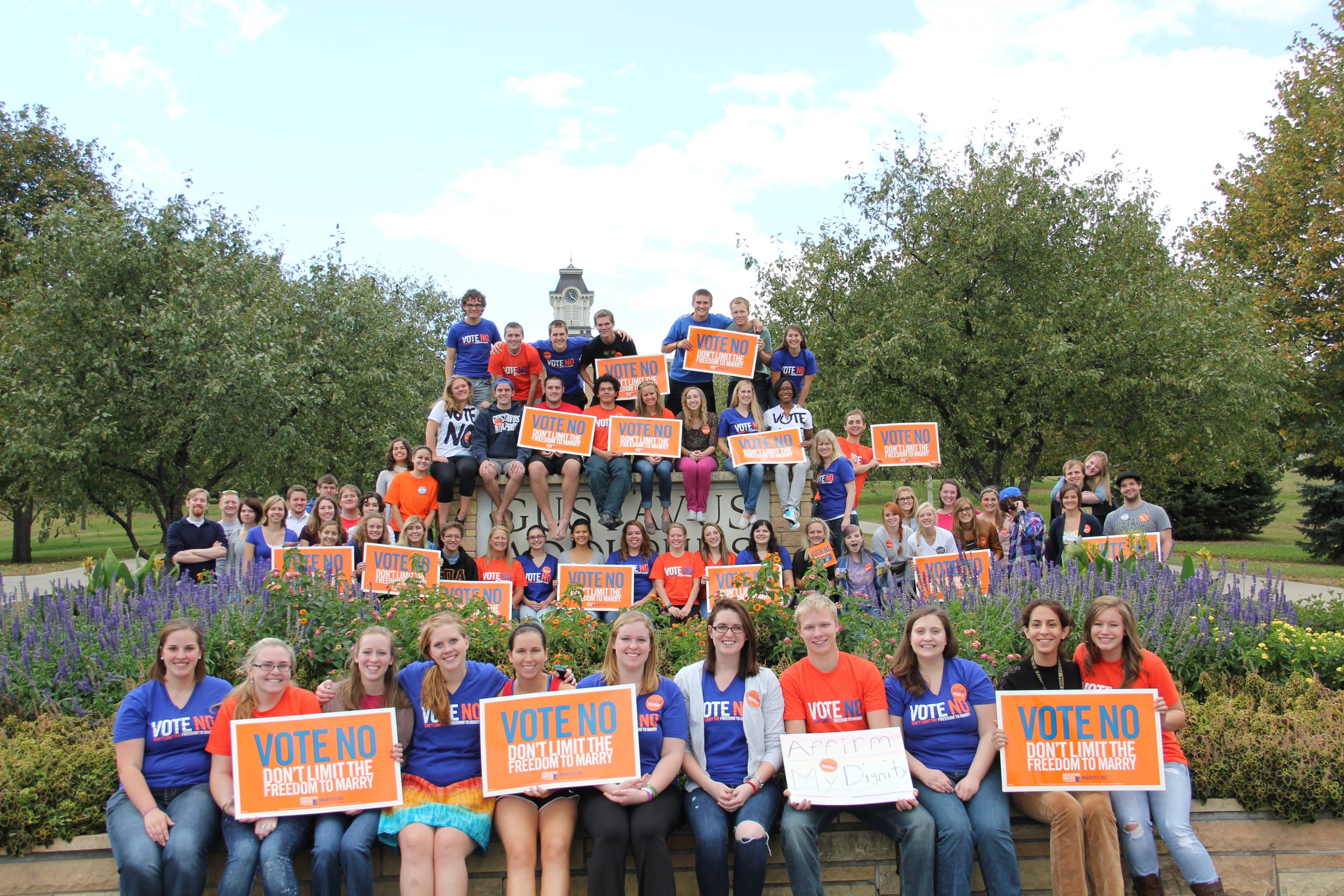…no matter your party
Voter turnout has almost always been low amongst those between the ages of 18 – 24, but as of the 2008 election things have started to change—49% voted, which is up 2% from 2004, according to the United States Census Bureau. Still, compared to every other age group, young voters turn out the least.
“I think politics are one of those things that works better the more people who are informed,” Senior Kevin Fortuna, President of College Republicans said. “When you’ve got the majority of people saying ‘I don’t really care, whatever,’ and then only see people who strongly believe, those are the ones who get up to vote. That does tend to lead to much less representational government.”
Professor of Mathematics and Computer Science, Max Hailperin, who also teaches a First Term Seminar entitled “How Do We Vote?” elaborated on the voter turnout epidemic.
“The idea is that the best decisions are made if people who have relevant information are doing the decision making. That doesn’t mean you should have the all-wise dictator who knows everything make the decision, it means that you recognize that different knowledge exists in different people’s heads, so they all should be participating in the decision making,” Hailperin said.
Indeed, with less voter turnout comes less representational government.
“If more people got involved, we could probably get a government that functioned better,” Fortuna said.
The goal is to get more people involved has been in the minds of Hailperin’s FTS, the College Democrats and the College Republicans, resulting in co-hosted events such as the Voter Registration Drive, which ended up registering 232 people in one day.
“If you’re a citizen, to exercise your right to vote is possibly the ultimate power that you have,” Junior Stetson McAdams, co-president of College Democrats said. “If you know something is wrong, then vote against them. Not acting is possibly the worst thing to do.”
“Politics is what runs our country, and we have the right to have a say in what goes on,” Senior Megan Nelson, co-president of College Democrats , said.
“It’s not only voting, it’s just staying politically engaged, letting politicians know what you think, because contrary to what a lot of people believe, politicians do want to hear what their constituents think, what their views are. They take that into consideration because they are not in Washington serving themselves, they are in Washington serving us. As long as we keep that connection with them, the more they will help us,” McAdams said.
To incite political interest and engagement, these groups have also focused on co-organizing events, including Watch Parties for the recurring presidential debates. But despite all of these efforts, the student body still appears apathetic towards government.
“There’s room for improvement. We hope we get more people interested and engaged,” Fortuna said.
“I hope there is more going on than what I’m seeing. I mean I do see some activity, but it’s really remarkable how much will be on this ballot,” Hailperin said. “A lot people are still focused on the presidential election, and that’s just this tiny little tip of an iceberg. In fact, it may be the least important thing on the entire ballot because it’s unlikely that Minnesota is going to be a swing state.”
It is very easy for local, or even state level issues to be eclipsed by the Presidential election, and considering the two controversial amendments to Minnesota’s state constitution, the Voter I.D. and Marriage Amendment, these state issues will have a far greater impact than what occurs on the national scale.
But amidst all of the political noise, it can be challenging and confusing for students to determine their own stance.
“Ask questions,” Senior Karla Leitzman, Deputy Campaign Director for the College Democrats, said. “If you don’t understand an issue or you don’t understand something that you’ve heard about in the news that’s going to be on the ballot, ask about it.”
Voter registration tables will be right outside the Caf periodically throughout Election Season.
